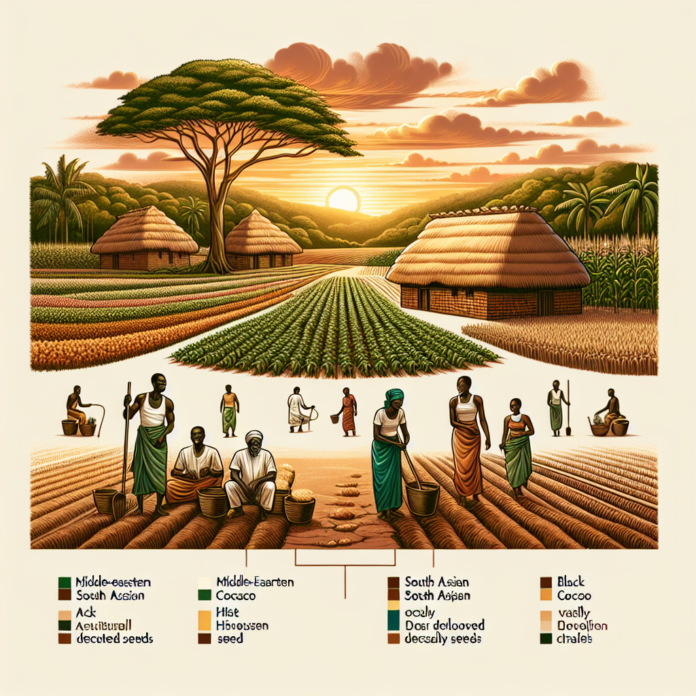Protecting Ghana’s Agriculture and Promoting Local Seed Innovation
Safeguarding Ghana’s Agricultural Heritage and Promoting Locally Developed Seed Varieties
Ghana’s agricultural landscape is rich with diversity, shaped by generations of local farmers who have cultivated a wide array of crops suited to the country’s unique climate and soil conditions. However, this invaluable agricultural heritage is under threat from various challenges, including climate change, urbanization, and the increasing reliance on imported seed varieties. To ensure food security and preserve the integrity of Ghana’s agriculture, it is crucial to focus on the promotion and development of locally enhanced seeds.
The Importance of Locally Enhanced Seeds
Locally enhanced seeds are varieties that have been specifically developed or improved to thrive in Ghana’s distinct environmental conditions. These seeds not only contribute to higher yields but also support biodiversity and resilience against pests and diseases. By investing in these local varieties, Ghana can enhance its agricultural sustainability while supporting smallholder farmers who rely on these crops for their livelihoods.
Challenges Facing Ghanaian Agriculture
Ghana’s agricultural sector faces numerous challenges, including inconsistent rainfall patterns, soil degradation, and the encroachment of invasive species. Additionally, the rising trend of monoculture farming practices threatens the diversity of crops that are essential for food security and nutritional health. Furthermore, farmers often lack access to the resources and knowledge necessary to adopt improved agricultural practices, including the use of locally enhanced seeds.
Strategies for Advancing Locally Enhanced Seeds
To combat these challenges and promote locally enhanced seeds, several strategies can be implemented:
1. **Research and Development**: Investment in agricultural research is vital for developing seed varieties that are resilient to climate change and local pests. Collaboration between universities, research institutions, and local farmers can foster innovation in seed technology.
2. **Education and Training**: Providing farmers with education on the benefits of using locally enhanced seeds can empower them to make informed decisions about their crops. Training programs can also teach sustainable farming practices that enhance soil health and productivity.
3. **Support for Local Seed Systems**: Establishing networks that support local seed production and distribution can help farmers access improved varieties. This includes creating seed banks and cooperatives that facilitate the sharing of knowledge and resources among farmers.
4. **Policy Advocacy**: Engaging with policymakers to create an enabling environment for the promotion of locally enhanced seeds is crucial. This can involve advocating for policies that protect indigenous seed varieties and support local seed producers.
5. **Community Engagement**: Involving local communities in the development and dissemination of locally enhanced seeds can ensure that the varieties are culturally relevant and meet the needs of the farmers.
The Path Forward
By prioritizing the preservation of Ghana’s agricultural integrity and advancing the development of locally enhanced seeds, the country can create a more sustainable and resilient agricultural system. This approach not only supports food security but also fosters economic growth and empowers local communities. As Ghana moves forward, a commitment to protecting its agricultural heritage while embracing innovation will be essential for building a brighter future for its farmers and the nation as a whole.


